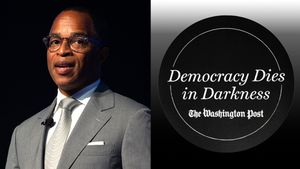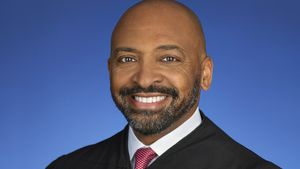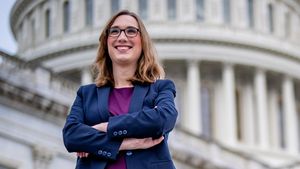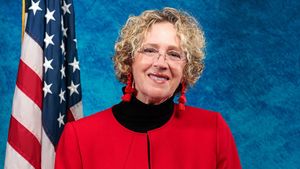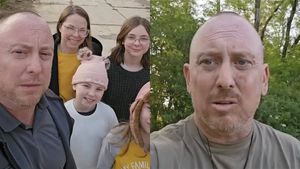Hollywood loves selling binaries -- comedy or drama, period or futuristic, action or romance, which means it should come as no surprise that this same philosophy typically applies to gender. So when Zackary Drucker, a transgender woman who had a background in experimental art, entered the industry in the early 2000s, she (predictably) had a hard time with the adjustment: "We all exist in so many worlds, but trans folks, especially, have a different way of compartmentalizing," she says. "Sometimes it's hard to integrate."
In her early 30s, Drucker watched other artists reckon with Hollywood by either assimilating or completely rejecting its standards. She decided to create her own path, making video and narrative projects a part of her practice, and finding a collaborator in fellow artist and former partner Rhys Ernst. But it wasn't until she was hired as an associate producer on Amazon's fledgling queer family drama Transparent in 2013 that she was offered the opportunity to participate in something bigger. This major production, with a crew of 100 people, introduced Drucker to a new, collaborative way of working that was different from the solitary process of an artist.
"The stakes are a lot higher than when you're working for yourself," she says. Still, she was surprised by just how much intellectual labor there was for her to do -- even with all the infrastructure. "There's a big learning curve for trans folks in any sector of professional life. We enter these spheres that aren't necessarily built with our needs in mind and we have to consciously carve space out for ourselves and assert ourselves. When you're working on a big team there isn't much space for a person's feelings or a learning curve, and you really have to earn your keep."
Even with such high stakes, Drucker says she was prepared when she finally found success. "I don't think that it came prematurely. By the time I started working in the entertainment industry I was already 30 and a fully formed adult," she laughs. "But I don't think I was flippant or cavalier or naive."
On a show with so many moving parts, Drucker creatively consulted the script, making sure the production was trans-inclusive. But she quickly learned to pick and choose her battles. "There is considerable interest right now in telling our stories, but there's still so many barriers -- more barriers than most folks are aware of," she says. "At best, you're able to inspire somebody, inspire hope. At best, we're able to expand people's notions of difference, especially when it comes to trans stories."
COVER | Hari Nef Tommy Dorfman Are Living the Rom Com of Our Dreams
That made it especially upsetting when sexual misconduct allegations were leveled in 2017 against Transparent's heterosexual, cisgender lead Jeffrey Tambor by his former assistant Van Barnes and actress Trace Lysette. Tambor was fired the next year, but Drucker is still understandably guarded about the ordeal. "I wish I felt that I could be vulnerable and [talk about that] really honestly. It was really tough. It basically impacted many areas of my life: personal, professional, public."
But the show must go on. Drucker, now 35, was the first trans woman invited to work with Time's Up, an organization committed to addressing systemic inequality in the workplace. She was immediately aware of the importance of the moment. "It was such a paradigm shift for me to sit in a room with the most influential women in Hollywood." She's also currently working on several feature films, including one centered on the life story of Candy Darling, a trans woman and important muse of Andy Warhol.
After decades on the sidelines, Drucker thinks that "the glacier is melting, slowly." She's hopeful for the future of trans representation and inclusion in the industry. "We are smart, agile, and tough and we have found an opening into a liberal-minded industry where people are more receptive," she says. "There are gestures of inclusion that make me hopeful. We're in good hands with the people making work right now...and the young people coming up next aren't going to have to deal with the trauma that we're dealing with and stories will be told really differently." But for Drucker, that collective pain serves its own purpose. "I do feel like what doesn't kill us makes us stronger. After surviving high school," she says, "I feel like I can do anything."
For more profiles of our favorite Hollywood "scene stealers," check out:
To read more, grab your own copy of Out's February issue featuring Hari Nef and and Tommy Dorfman as the cover on Kindle, Nook and Zinio today, and on newsstands January 22. Preview more of the issue here. Get a year's subscription for $19.95.



































